Kicking off our Massachusetts Community Health & Healthy Aging Project to build a state-wide coalition addressing FGM/C
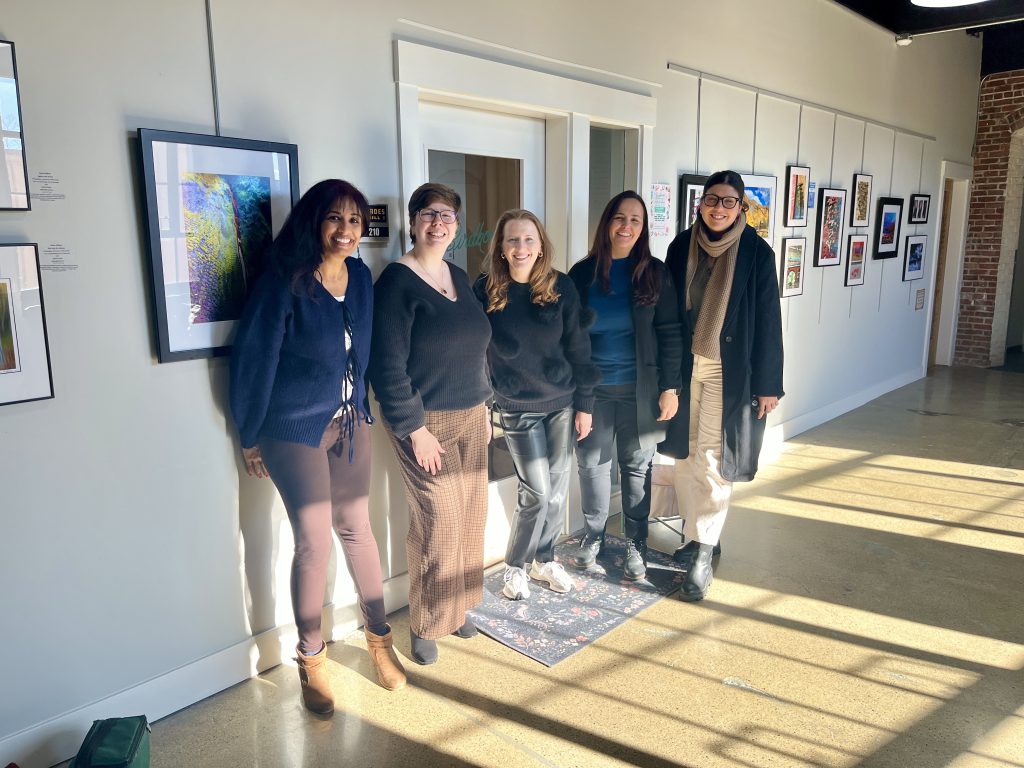
Last month, we hosted our first meeting for the Massachusetts Community Healthy and Healthy Aging project. The meeting, which took place at Birdhouse in Amesbury Massachusetts, marked the beginning of a collaboration between Sahiyo, The US End FGM/C Network, and UMass Chan Medical School, and was held to discuss project aims, goals, and timeline for the first year of project implementation. Through the funding provided by The Massachusetts Community Health and Healthy Aging project, our team will work towards building a comprehensive network of stakeholders and service providers who can implement a coordinated, systems-based approach to addressing FGM/C over the course of five years. Our goal is to improve health outcomes for survivors of FGM/C, with a special focus on survivors who are people of color. Additionally, we will work to prevent FGM/C among future generations by increasing resources to overcome obstacles we often face, such as lack of awareness among service providers regarding FGM/C. Along with our partner organizations we’re grateful to The Massachusetts Community Health and Healthy Aging Funds for their support of this critical issue. To learn more about this project, please visit: https://mahealthfunds.org/
Roundtable on Systems Change to Address FGM/C Perspectives from State and Municipal Coalitions – a virtual event
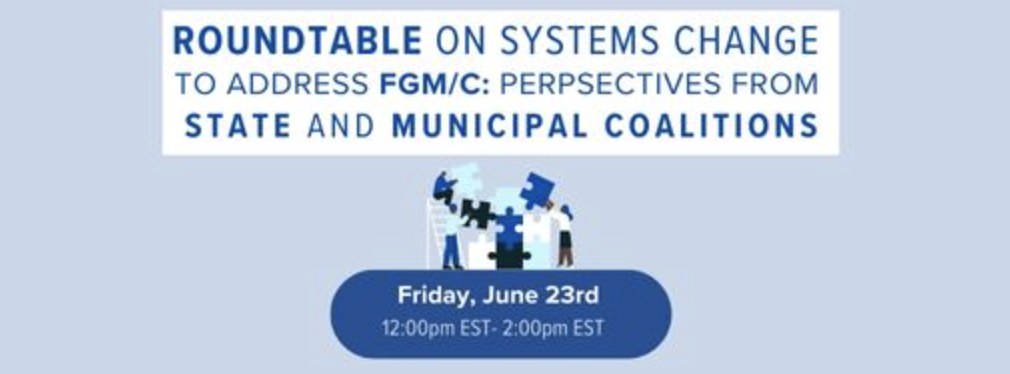
On June 23rd, RTI’s Addressing Female Genital Mutilation/Cutting Training and Technical Assistance Project (AFTTAP) team organized the event Roundtable on Systems Change to Address FGM/C Perspectives from State and Municipal Coalitions. The roundtable featured state and municipal coalitions and working groups from across the United States that work to address FGM/C domestically. Sahiyo U.S. Executive Director Mariya Taher facilitated a panel discussion during the roundtable and featured coalition representatives came from Washington State, Connecticut, New York City, Minnesota, Greater Los Angeles, and Massachusetts. Panelists were able to provide insight into their initiatives, processes, and provide ideas on how they would like to see the prevention, support work, and advocacy surrounding FGC expand. Some coalitions focused more on advancing legislation on FGC while others focused on raising awareness of FGM/C. Joanne Golden, a Sahiyo U.S. Advisory Board member and founding member of the Massachusettes Coalition, spoke about the coalition’s success in passing state legislation to address FGC in August 2020. Preventing and responding to FGM/C requires effective collaboration across systems and this roundtable; overall, this event created a dialogue for U.S. based coalitions to discusses effective forms of collaboration for the future in the hopes of ending FGM/C in this country.
Sahiyo presents at the Mitchell Hamline School of Law in Minnesota
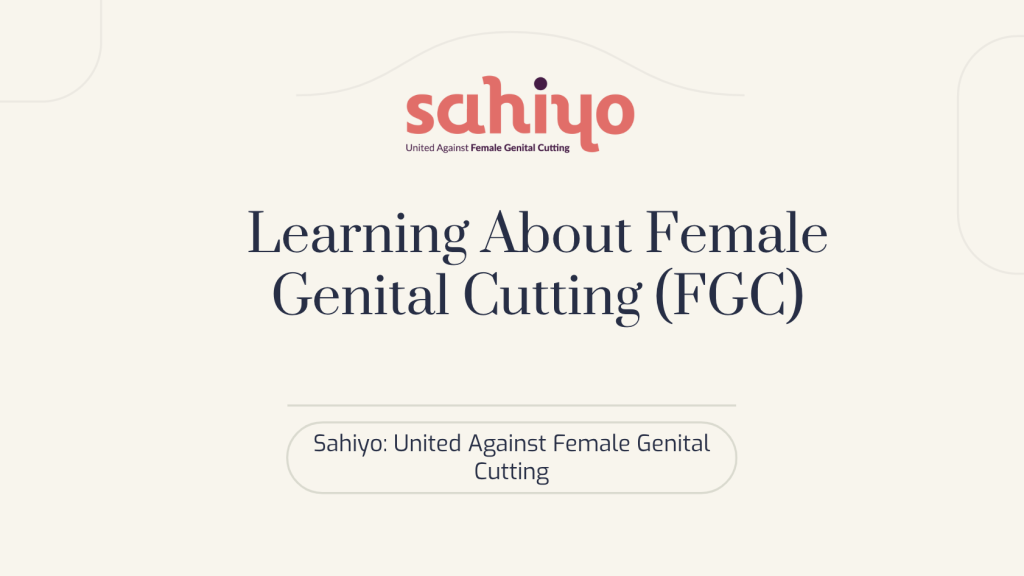
On November 2nd, Sahiyo Programs Coordinator Catherine Cox and current volunteer (as well as former Development Assistant) Sarrah Hussein partnered on a presentation for a class at the Mitchell Hamline School of Law in Minnesota on the topic of female genital mutilation/cutting (FGM/C). The presentation included some background on what FGM/C is, it’s prevalence in the U.S., and some legal background in the United States. More specifically, they introduced some of Sahiyo’s past legal work in Massachusetts, and current work to get a comprehensive state-wide law passed in Connecticut . To learn more about Sahiyo’s community education and outreach programs, visit this page on our website.
Training Social Workers to be more responsive to survivors of FGC
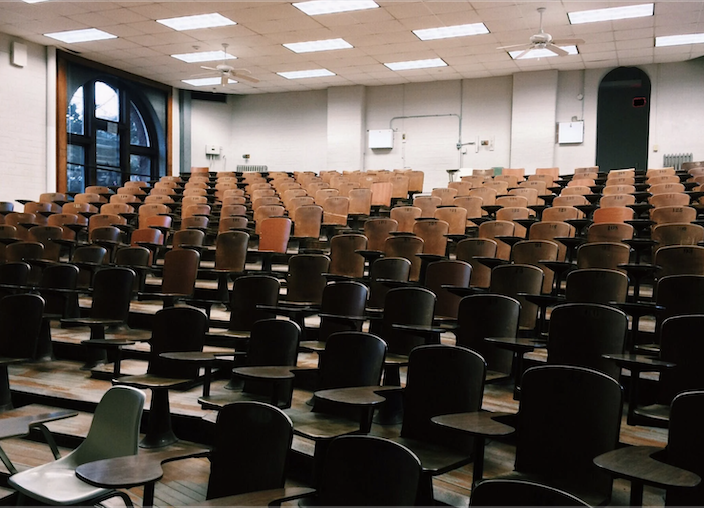
On June 23rd, Caitlin LeMay, LCSW of the US End FGM/C Network, and Mariya Taher, MSW, MFA of Sahiyo, parterned to provide a workshop on Female Genital Cutting (FGC) for social workers through Boston College Continuing Education. The workshop provided an introductory foundation for understanding what FGC is, including prevalence in the U.S. and globally, and best practices for working with survivors. Pre- and post-evaluations revealed a significant increase in participants’ confidence with talking about and addressing FGC in their social work practices, and how to provide relevant resources if needed. Boston College Continuing Education, in collaboration with the School of Social Work, offers a series of workshops three times a year – in Spring, Summer, and Fall – for new and experienced social workers looking to earn CEUs to maintain their license.
Sahiyo presents at the MACA Conference
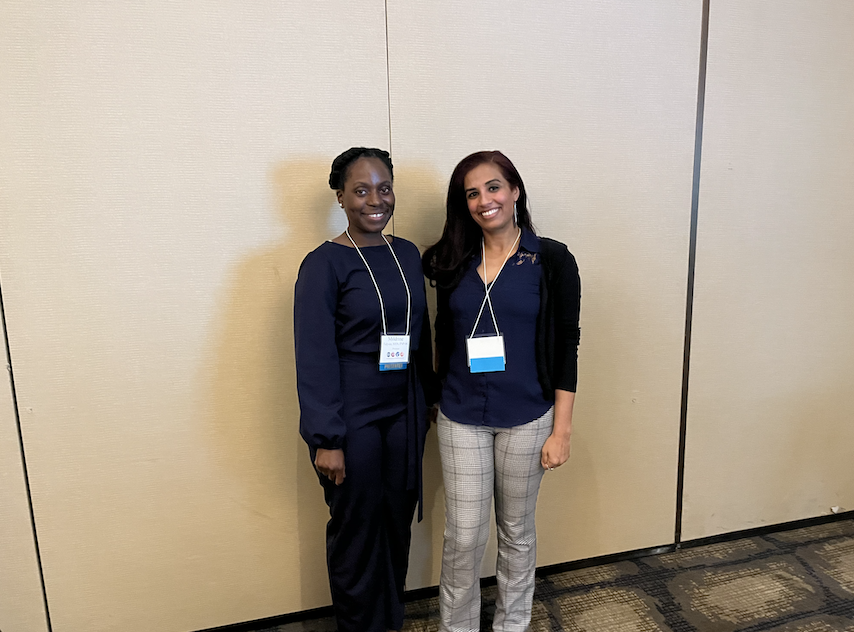
On May 10th, Sahiyo presented at the 12th Annual Massachusetts Children’s Alliance Conference. In attendance were over 200 multidisciplinary child abuse professionals from across the state. Sahiyo cofounder, Mariya Taher, partnered with Mildrine Tulysse, a Massachusetts Pediatric Sexual Assault Nurse Examiner, to provide information about the realities of female genital cutting (FGC) in the state of Massachusetts. The training they provided was done to increase education and awareness of FGC within the United States, provide resources to better understand how to give high-quality care to survivors; and empower frontline professionals to develop culturally competent and trauma-informed services and resources to survivors of FGC.
Sahiyo leads training for Sexual Assault Nurse Examiners
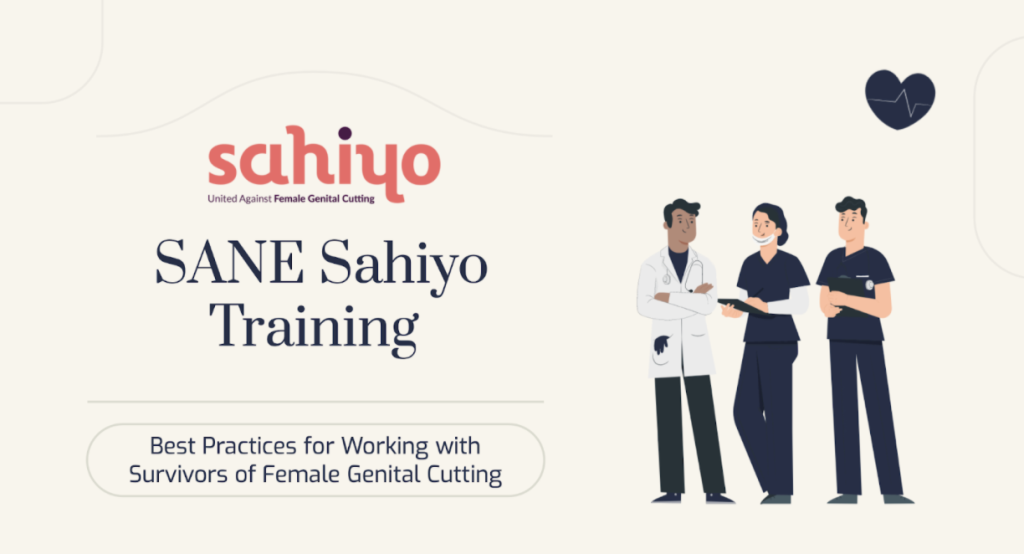
On November 9th, Sahiyo team members volunteer Zahra Qaiyumi, Programs Intern Sarah Boudreau, and Programs Coordinator Cate Cox led a training for Massachusetts based Sexual Assault Nurse Examiners (SANEs). SANEs are registered nurses who have completed additional training and education to provide comprehensive healthcare to those who have experienced sexual assault. As an extreme form of gender-based violence, knowledge about and awareness of Female Genital Mutilation/Cutting (FGM/C) is integral to the care that SANEs provide. During the event, Sahiyo provided much needed education to over 200 participants in virtual attendance. Topics discussed included defining FGM/C and its clinical consequences, the legal context of FGM/C both locally and nationally, and an interactive discussion about best practices for providing healthcare to survivors utilizing the Voices to End FGM/C digital storytelling project. Participants were active in the discussion, recounting times when they encountered survivors of FGM/C in a clinical setting and how those interactions could have been improved. They also self-identified gaps in their own knowledge of the practice, including timing of deinfibulation in pregnancy and how to perform a pelvic exam on someone who has experienced infibulation. Cultural humility-based training of healthcare workers who come in to direct contact with FGM/C survivors has the potential to improve the quality of life of survivors, improve access to appropriate healthcare and potentially prevent the practice in future generations. We also shared some of Sahiyo’s resources, including our Trauma Series Blogs and the Mumkin app. As an organization, Sahiyo hopes to participate in more events like this and continue to evolve training content to fit the needs of survivors and the individuals providing them care.
Sahiyo participates in Massachusetts Healthy Youth Consortium

On November 1st Sahiyo partnered with The Massachusetts Healthy Youth Consortium (MAHYC) to hold a training for K-12 teachers about the importance of using education as a means of preventing female genital cutting (FGC) and how they can become advocates against this practice. The goal of MAHYC is for educators, health professionals, policymakers, and other advocates to work collaboratively towards helping to pass The Healthy Youth Act which would ensure that comprehensive curricula are taught in public schools that choose to offer sex education. Massachusetts ranks 12th in the nation for at-risk populations, with nearly 15,000 girls at risk, with the largest at-risk areas being Boston, Newton, and Cambridge. FGC is often rooted in secrecy and isolation, and girls at risk are often taught never to speak of what they experienced. Sahiyo believes that education can be a powerful tool to break this silence and bring some clarity to the myths surrounding female genital cutting. Watch the training here.
Massachusetts Senate passes FGM/C bill
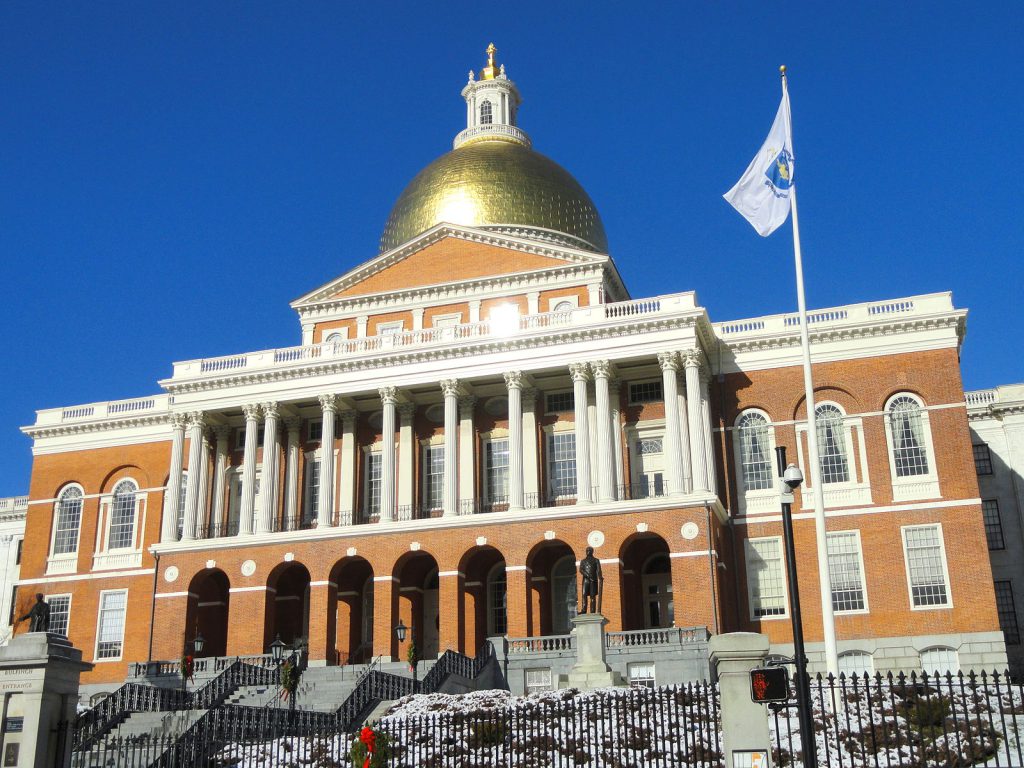
BOSTON, MA – July 30, 2020 – Sahiyo would like to thank the President of the Massachusetts Senate, Karen Spilka, and bill sponsor Senator Joe Boncore (D-First Suffolk and Middlesex) for the passage of bill H4606 “An Act Relative to the Penalties for the crime of Female Genital Mutilation/Cutting (FGM/C)” in Massachusetts. The FGM/C bill had a favorable vote in a formal session of the Senate, after it passed in the House on July 16th. Governor Charlie Baker will have 10 days to sign the bill. Survivors Mariya Taher, an Anonymous survivor, and activist Hanna Stern created a change.org petition to plead with the Massachusetts state legislature to protect young girls in Massachusetts from being cut by making FGM/C illegal. Taher, in particular, was praised by Senator Boncore for her work and advocacy on the issue. Taher has worked with the Women’s Bar Association of Massachusetts independently, and on behalf of Sahiyo – United Against Female Genital Cutting, of which she is the U.S. Executive Director and co-founder. Senator Boncore also recognized Sahiyo for their work on advocating for the abandonment of FGM/C. A member of the legislative working group, Joanne Golden, is also a member of the U.S. Advisory Board for Sahiyo. On June 16th, the Massachusetts House of Representatives voted favorably to pass the bill. The FGM/C bill not only has bipartisan support, but also bicameral support, with over 100 Senate and House cosigners of the original bills (H3332, H1466). The bill has also been supported by almost 50 organizations, including The Women’s Bar Association of Massachusetts, the AHA Foundation, UNICEF USA, the U.S. End FGM/C Network, Boston Mayor’s Office of Women’s Advancement, Office of the Child Advocate, Caucus of Women Legislators, American Academy of Pediatrics – Massachusetts Chapter, and American Congress of Obstetricians and Gynecologists (ACOG) – Massachusetts section, and Sahiyo, to name only a few. FGM/C is defined by the World Health Organization as removal of all or part of a girl’s healthy genitals and surrounding tissue for non-medical reasons, often resulting in serious health consequences, including the risk of death in childbirth, and lifelong trauma. There are no health benefits to this practice. According to the Centers for Disease Control, half a million women and girls living in the U.S. have been cut or are at risk of FGM/C. Over fourteen thousand such women and girls reside in Massachusetts, which ranks as 12th in the nation for at-risk populations. Last session, the Joint Judiciary Committee heard unequivocal testimony from survivors that FGM/C happens in the U.S., and that girls born in Massachusetts are at risk. Thirty-eight states have already passed laws banning FGM/C, including during the shutdown for the COVID-19 pandemic, and we respectfully urge Governor Baker to sign bill H4606 into law so that Massachusetts can become number 39. In November 2019, a U.S. District court struck down the federal law making FGM/C illegal, finding that Congress exceeded its authority under the U.S. constitution, and that FGM/C is a violent crime that must be regulated by the states. Top Massachusetts law enforcement officials testified last September that existing state criminal laws would not cover FGM/C. The Department of Children and Families considers FGM/C a form of child abuse. Massachusetts must act to stop this practice. Thank you to Senate President Spilka and House Speaker DeLeo, and our House and Senate bill sponsors for your leadership, support, and action on such an important issue of women and girl child rights.
Massachusetts House passes FGM/C bill
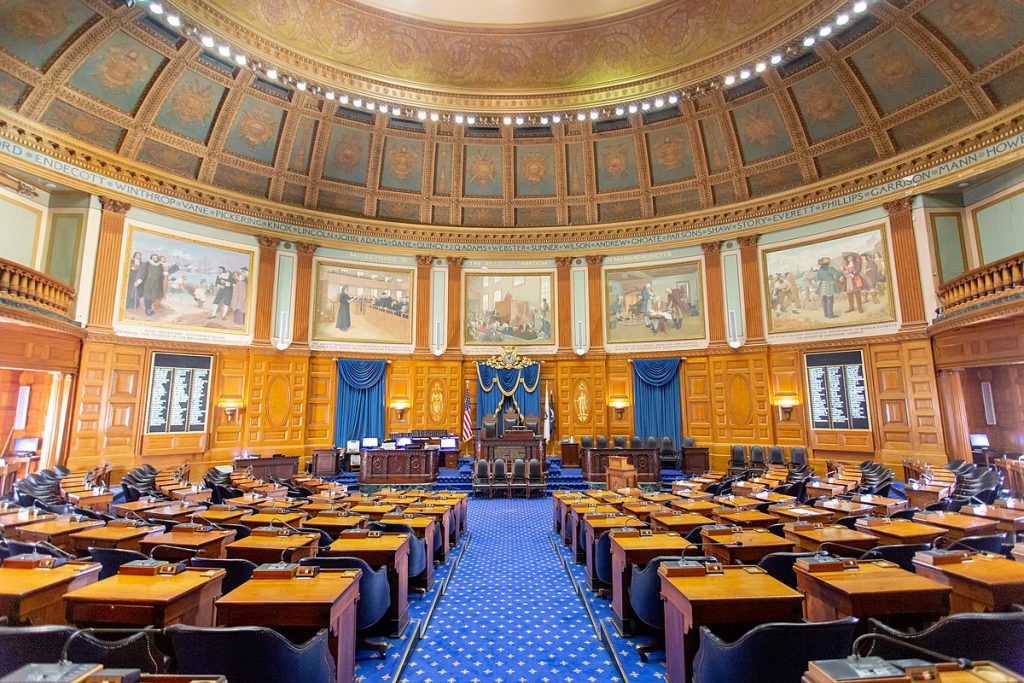
July 16, 2020 – The Massachusetts House of Representatives has just voted favorably in an informal session to pass a bill to protect girls from female genital mutilation/cutting (FGM/C). H.4606 – An Act Relative to the Penalties for the Crime of Female Genital Mutilation will now go to the Senate floor for a vote. Survivor Mariya Taher and activist Hanna Stern created a change.org petition to plead with the Massachusetts state legislature to protect young girls in Massachusetts from being cut by making illegal FGM/C. Taher has worked with the Women’s Bar Association of Massachusetts independently and on behalf of Sahiyo – United Against Female Genital Cutting, of which she is the U.S. Executive Director and co-founder. Sahiyo, along with Taher, Yusuf and Stern, would like to thank the Women’s Bar Association of Massachusetts, Speaker of the Massachusetts House of Representatives, Robert A. DeLeo, and bill sponsors State Representatives Jay Livingstone (D-8th Suffolk), Natalie Higgins (D-4th Worcester), and Brad Jones (R-20th Middlesex, House Minority Leader) for today’s passage of bill H4606 “An Act Relative to the Penalties for the crime of Female Genital Mutilation (FGM)” in Massachusetts. The FGM bill has not only bipartisan support, but also bicameral support, with over 100 Senate and House cosigners of the original bills (H3332, H1466). The bill has also been supported by almost 50 organizations, including The Women’s Bar Association of Massachusetts, U.S. End FGM/C Network, Sahiyo, UNICEF USA, Boston Mayor’s Office of Women’s Advancement, Office of the Child Advocate, Caucus of Women Legislators, American Academy of Pediatrics – Massachusetts Chapter, and American Congress of Obstetricians and Gynecologists (ACOG) – Massachusetts section, to name only a few. FGM/C is defined by the World Health Organization as removal of all or part of a girls’ healthy sex organs and surrounding tissue for non-medical reasons, often resulting in serious health consequences, the risk of death in childbirth, and lifelong trauma. According to the Centers for Disease Control, half a million women and girls living in the United States have been cut or are at risk of FGM/C. Over fourteen thousand such women and girls reside in Massachusetts, which ranks as 12th in the nation for at-risk populations. Last legislative session, the Joint Judiciary Committee heard unequivocal testimony from survivors that FGM/C happens in the U.S. and that girls born in Massachusetts are at risk. Thirty-eight states have already passed laws banning FGM/C including during the shutdown for the COVID19 pandemic, and with your immediate action by the Massachusetts Legislature and Governor Baker, Massachusetts can become number 39. We do not want our state to be a destination for FGM/C. In November 2019, a U.S. District court struck down the federal law making FGM/C illegal, finding that Congress exceeded its authority under the U.S. constitution, and that FGM/C is a violent crime that must be regulated by the states. Top Massachusetts law enforcement officials testified last September that existing state criminal laws would not cover FGM/C. The Department of Children and Families considers FGM/C a form of child abuse. Massachusetts must act to stop this practice. We respectfully urge all to support this legislation and take the necessary steps immediately to send it to the Senate floor for a vote before the end of the session on July 31st. Sahiyo is dedicated to empowering Asian communities to end female genital cutting (FGC) and create positive social change. By working towards an FGC-free world, we aim to recognize and emphasize the values of consent and a child’s/woman’s right over her own body. We aim to enable a culture in which female sexuality is not feared or suppressed but embraced as normal. The Women’s Bar Association of Massachusetts (WBA) has over 1500 members and was founded in Boston, Massachusetts in 1978 with a goal to achieve the full and equal participation of women in the legal profession and in a just society. It is one of the oldest and largest women’s bar associations in the country. photo by Lëa-Kim Châteauneuf
Sahiyo Stories screened in Massachusetts
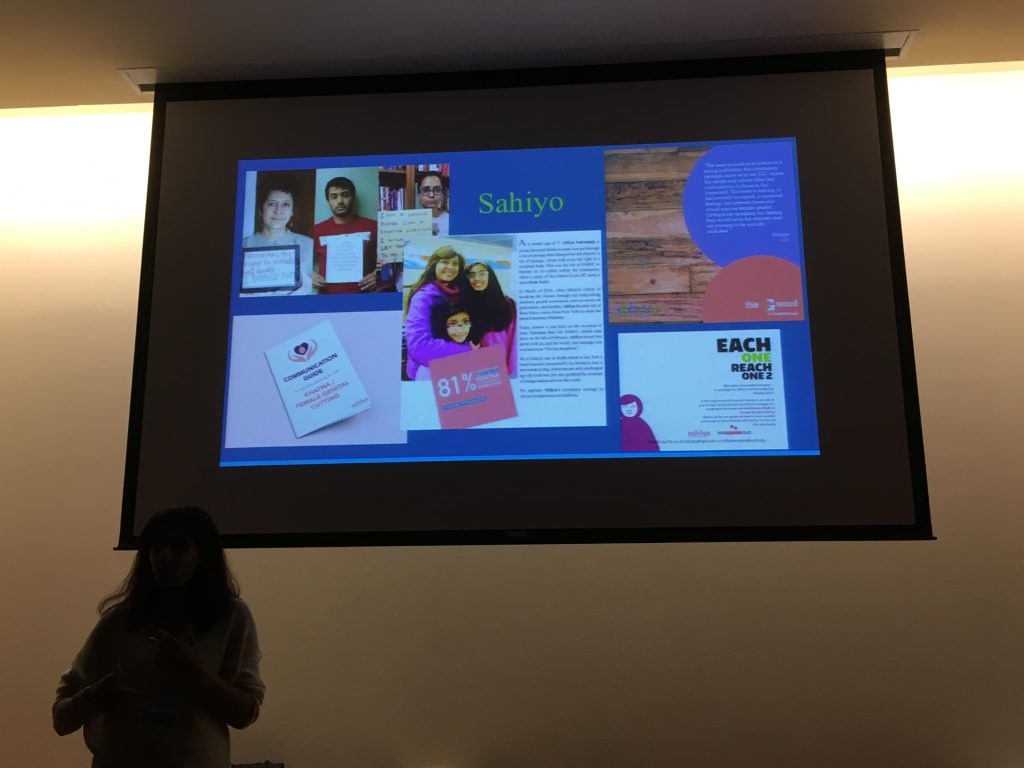
In May 2018, the Sahiyo Stories project brought together nine women from across the United States to create personalized digital stories that narrate the experience of undergoing female genital mutilation/cutting (FGM/C) and/or the experience of their advocacy work to end this form of gender violence. The video stories created at the workshop have since then been released on YouTube (you can watch them here). In November a public screening of Sahiyo Stories was held in Massachusetts. Lesley University, Massachusetts On November 9th, Sahiyo took part in Violence Against Women Conference hosted by Lesley University. This day-long, interdisciplinary event aimed to “provide a platform for scholars, artists and community activists to explore the interplay between global representations of violence against women and historical and contemporary discourses.” Sahiyo held a screening of the Sahiyo Stories digital stories, with an introduction on ‘What is Female Genital Cutting’ by Sahiyo co-founder Mariya Taher, and a post-viewing Questions & Answers session with Renee Bergstrom, one of the Sahiyo story participants. At the Lesley University screening, the audience included a mixture of folks, with a majority of the participants being Lesley students interested in gender equity, human rights, international women’s issues or a unique cross of these fields. Here’s what Lara Kingstone, Sahiyo’s Communication Assistant had to say about the event: The Q&A session allowed for followed was a frank and informative discussion of FGC, social change, and the nature of community traditions. Having both Mariya and Renee present added a layer of personal connection to the screening, and I believe that guests and facilitators alike (and myself, the Communications Assistant!) came away feeling energized, informed and connected by the session. ~ Lara
